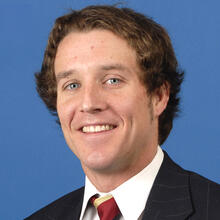The House Energy and Commerce Committee is scheduled to pass legislation on April 25 that would cut federal Medicaid funding for the Commonwealth of Puerto Rico by about $5.5 billion through 2019, relative to current law. The provision is part of legislation that House Republicans are assembling, and plan to bring to the House floor in May, to make $261 billion in budget cuts, as an alternative to automatic cuts in various programs now scheduled to take effect in January 2013. The Obama Administration has also proposed alternative deficit reduction to the scheduled automatic cuts; the Administration’s proposals include revenue increases on high-income households as well as budget cuts and do not reduce Medicaid funding for Puerto Rico.[1]
The provision affecting Puerto Rico, unveiled a few days ago by Energy and Commerce Committee chair Fred Upton (R-MI), would repeal a provision of the Affordable Care Act (ACA) that is designed to help address a longstanding problem in the Medicaid program — chronic federal underfunding of Medicaid in Puerto Rico and other U.S. territories. The federal government pays a fixed share of states’ Medicaid costs that varies between 50 percent and 75 percent, depending on a state’s per-capita income. But it picks up only 50 percent of the Medicaid costs for Puerto Rico (and the other territories) although Puerto Rico’s per-capita income is well below those of all states.
In addition, federal Medicaid funding is capped for the territories but not for the states. If Puerto Rico’s costs exceed the fixed dollar amount for a given year, it is responsible for 100 percent of any additional costs. And because the federal funding cap historically has been set well below what Puerto Rico needs for Medicaid, the federal government effectively pays much less than half of Puerto Rico’s Medicaid costs.
For example, in 2005, the federal government picked up only 20 percent of Puerto Rico’s Medicaid costs. Even in 2010, which incorporated both a permanent but modest increase in the federal Medicaid funding cap for the territories, enacted in 2005, and a temporary increase in the funding cap under the 2009 Recovery Act, federal funding accounted for only 35 percent — or $364 million — of Puerto Rico’s Medicaid costs of nearly $1.1 billion.[2]
To help address this problem, the ACA raised the federal funding caps for Puerto Rico and the other territories — American Samoa, the Northern Mariana Islands, Guam, and the U.S. Virgin Islands — by $6.3 billion between July 1, 2011 and the end of fiscal year 2019.[3] Puerto Rico is scheduled to receive the large majority of this funding increase — about $5.5 billion. (Each territory is to receive a percentage of the $6.3 billion funding increase equal to its share of the total federal Medicaid funding available to all territories under the previous territorial funding caps.) The ACA also increased the federal Medicaid matching rate for Puerto Rico and the other territories from 50 percent to 55 percent (still well below the share they would likely receive if the matching rates for the territories were based on the same per-capita-income formula as is used for the states).
This large funding increase should reduce the federal Medicaid funding shortfalls that Puerto Rico faces, allowing it to better serve its low-income residents’ health and long-term care needs. Puerto Rico’s Medicaid income eligibility limit for parents in a family of four is effectively just 36 percent of the poverty line, compared to 63 percent for working parents in the median U.S. state. (Through a CHIP-funded Medicaid expansion, Puerto Rico covers children in families of four up to 71 percent of the poverty line; today, in nearly all states, Medicaid and CHIP cover children up to at least 200 percent of the poverty line.[4] )
Puerto Rico is covering some individuals above these income levels through a separate territory program funded entirely with non-federal dollars; it could use the increased federal funding to move some enrollees from the separate program into Medicaid and use the freed-up Puerto Rico funds to extend health coverage to more of the Commonwealth’s low-income residents. Puerto Rico could also use the funding to cover additional Medicaid benefits; the territories do not cover all of the “mandatory” Medicaid benefits that states and the District of Columbia must cover.[5]
Puerto Rico’s residents are disproportionately low-income and would likely benefit substantially from the enhanced federal Medicaid funding that the ACA would provide. Puerto Rico’s poverty rate of 45 percent far exceeds the U.S. poverty rate (15.3 percent).[6] Its unemployment rate of 15 percent is higher than that of any state or the District of Columbia, according to Labor Department data. In addition, its residents have much less access to private insurance than people in the rest of the United States; only 42 percent have private insurance, compared to 65.8 percent in the United States overall.
By repealing the health reform law’s increase in the funding cap and upward adjustment in the territories’ matching rate from 50 to 55 percent, the House Energy and Commerce Committee measure would cause Puerto Rico and the other territories to once again face large federal underfunding. For this reason, House members from Puerto Rico and the other territories have expressed strong opposition to the provision.[7]
In a letter to Rep. Upton on April 20, the representatives said the Energy and Commerce proposal “would repeal the provision in the Affordable Care Act that mitigated, but by no means ended, the unequal treatment our constituents have long received under Medicaid” and would “undo all of the progress that Congress recently made” on this issue. “As a result of chronic underfunding by the federal government,” they wrote, “too many patients in the territories receive inadequate care, too many providers in the territories are not adequately compensated for their services, and too much of the financial burden associated with health care delivery must be borne by the territorial governments themselves.”

